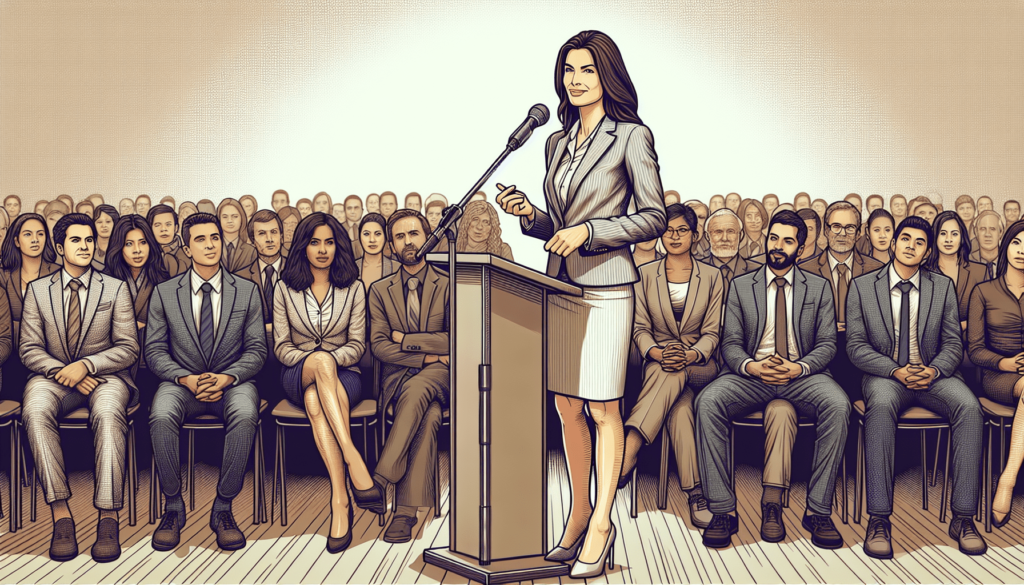How Do You Handle Controversial Topics In Nonfiction?
How do you handle controversial topics in nonfiction? Dealing with controversial subjects in nonfiction writing can be tricky, as it involves presenting facts and information that may be sensitive or contentious to some readers. However, as a writer, it is important to approach these topics with care and thoughtfulness. In this article, we will discuss various ways to handle controversial topics in nonfiction effectively.

Understanding Controversial Topics
Controversial topics are subjects that spark debate, disagreement, or strong emotions among people. These may include issues related to politics, religion, social issues, or any other topic that is deemed controversial by society. It is essential to recognize that what is controversial to one person may not be so to another. As a writer, it is crucial to be aware of the impact that these topics can have on your readers and to approach them with sensitivity.
Importance of Research
Before tackling a controversial topic in your nonfiction writing, thorough research is essential. Engaging in in-depth research allows you to gather reliable information, facts, and evidence to support your claims. Understanding the different perspectives and arguments surrounding the topic will help you present a well-rounded view in your writing. Additionally, research enables you to anticipate potential counterarguments and challenges to your views, allowing you to address them effectively.
Fact-Checking and Accuracy
When discussing controversial topics, it is crucial to ensure that your information is accurate and based on verified sources. Misinformation or false claims can undermine your credibility as a writer and may lead to misunderstandings or further controversy. Fact-checking your content and citing reputable sources will help you maintain accuracy and reliability in your nonfiction writing. Remember that presenting accurate information is vital in informing and engaging your readers effectively.
Addressing Bias and Personal Beliefs
As a writer, you likely have personal beliefs, opinions, or biases that can influence how you approach controversial topics in your nonfiction writing. It is essential to acknowledge your own biases and strive to present a balanced and fair perspective on the subject matter. Being aware of your biases allows you to evaluate information objectively and present a well-rounded view that considers different viewpoints.
Self-Reflection
Before delving into a controversial topic, take the time to reflect on your own beliefs and biases. Consider how your personal experiences, values, and perspectives may shape your understanding of the topic. Engaging in self-reflection allows you to identify potential biases that may impact your writing and helps you approach the subject matter with openness and objectivity.
Presenting Multiple Perspectives
When discussing controversial topics, it is important to present multiple perspectives and viewpoints to provide a comprehensive understanding of the issue. Recognize that there are often diverse opinions and interpretations surrounding controversial subjects, and acknowledging this diversity enhances the credibility and thoroughness of your writing. By presenting different perspectives, you invite readers to consider various viewpoints and form their conclusions based on a comprehensive understanding of the topic.
Navigating Sensitivity and Respect
Controversial topics can evoke strong emotions and reactions from readers, making it essential to navigate these subjects with sensitivity and respect. As a writer, you have the responsibility to address controversial topics thoughtfully and consider how your words may impact your audience. By approaching these subjects with empathy and respect, you can create a safe and inclusive environment for discussing challenging topics.
Empathy and Understanding
Empathy is a valuable skill when addressing controversial topics in nonfiction writing. Put yourself in the shoes of your readers and consider how different perspectives and experiences may shape their reactions to the subject matter. Understanding the emotional impact of controversial topics allows you to approach them with empathy and compassion, fostering a sense of connection and understanding with your audience.
Respectful Language and Tone
When discussing controversial topics, it is essential to use respectful language and tone in your writing. Avoid inflammatory or antagonistic language that may provoke strong reactions or escalate tensions among your readers. Instead, strive to maintain a respectful and courteous tone that encourages constructive dialogue and promotes mutual respect. By choosing your words carefully and expressing your ideas thoughtfully, you can engage readers in meaningful discussions without causing unnecessary conflict.
Engaging Constructive Dialogue
One of the goals of addressing controversial topics in nonfiction writing is to engage readers in meaningful and constructive dialogue. By creating a space for open discussion and exchange of ideas, you can encourage readers to reflect on their perspectives, challenge their beliefs, and explore alternative viewpoints. Engaging in constructive dialogue promotes critical thinking and fosters a deeper understanding of complex issues.
Encouraging Critical Thinking
Controversial topics often require readers to think critically and analyze different viewpoints to develop informed opinions. Encouraging critical thinking in your nonfiction writing involves presenting information in a clear, logical, and engaging manner that prompts readers to question assumptions, evaluate evidence, and form well-reasoned conclusions. By challenging readers to think critically about controversial topics, you empower them to become more informed and thoughtful individuals.
Providing Resources for Further Exploration
Incorporating additional resources and references in your nonfiction writing can enhance readers’ understanding of controversial topics and encourage further exploration of the subject matter. By citing relevant sources, studies, and diverse perspectives, you provide readers with the opportunity to delve deeper into the topic, expand their knowledge, and develop a more comprehensive understanding of complex issues. Providing resources for further exploration demonstrates your commitment to informing and educating your audience on controversial topics.

Handling Pushback and Criticism
When discussing controversial topics in nonfiction writing, it is inevitable that you may encounter pushback, criticism, or disagreement from readers. Handling feedback with grace and professionalism is essential to maintaining a respectful and constructive dialogue. Addressing criticism effectively allows you to engage with your audience, learn from different perspectives, and strengthen your writing skills.
Responding to Feedback
When receiving pushback or criticism on your nonfiction writing, take the time to consider the feedback thoughtfully and respond with respect and professionalism. Acknowledge the concerns or differing opinions raised by your readers and strive to address them constructively. Responding to feedback demonstrates your openness to dialogue and your willingness to engage in meaningful conversations with your audience.
Learning from Criticism
Criticism, whether positive or negative, can provide valuable insights and opportunities for growth as a writer. Embrace feedback as a chance to learn from different perspectives, expand your understanding of controversial topics, and refine your writing skills. By approaching criticism with an open mind and a willingness to improve, you can turn challenging feedback into valuable learning experiences that enhance your nonfiction writing.
Conclusion
Handling controversial topics in nonfiction writing requires careful consideration, research, empathy, and respect. By understanding the nature of controversial subjects, addressing bias, navigating sensitivity, engaging in constructive dialogue, and handling pushback effectively, you can create meaningful and thought-provoking content that informs, educates, and inspires your readers. Approach controversial topics with a balanced perspective, empathy, and an open mind to foster meaningful discussions and promote a deeper understanding of complex issues in your nonfiction writing.

Comments are closed